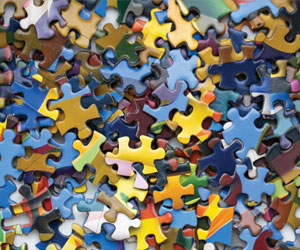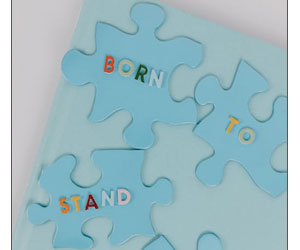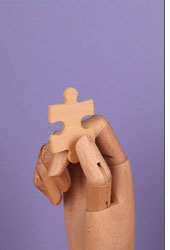
The Health Benefits of Doing Jigsaw Puzzles
There is something incredibly soothing about doing a jigsaw puzzle. Perhaps it's the repetitive motion of fitting the pieces together or the sense of satisfaction you feel when you finally finish the puzzle. Whatever the reason, there is no doubt that puzzles are a great way to keep our minds active and healthy.
In fact, doing puzzles has always been an activity people have enjoyed doing, but only recently have studies shown how beneficial doing jigsaw puzzles could be for people of all ages, particularly kids and older adults. Both age categories love doing jigsaw puzzles, and for good reasons.
Here are the health benefits this activity puts on the table for seniors and how it can help them live a higher quality and more amusing, fulfilled life in the years when they're supposed to relax and enjoy.
Puzzles Help Exercise Both Sides of Their Brain
There’s this thing with puzzles: the more difficult they are—the more people enjoy playing and solving them. In that context, puzzles are not just an excellent way to pass the time but also good for seniors’ brains. Research has shown that working on puzzles can help them exercise both sides of their brain. This can greatly improve their memory (something really important for them), problem-solving skills, and even creative thinking.
time but also good for seniors’ brains. Research has shown that working on puzzles can help them exercise both sides of their brain. This can greatly improve their memory (something really important for them), problem-solving skills, and even creative thinking.
The best part about puzzles is that they're just fun. Whether they’re engaged in a simple word search or a complex jigsaw puzzle, exceptional satisfaction comes from putting all the pieces together and seeing the finished product. So next time when you decide to spend some quality time with a senior from your household, why not suggest trying solving a puzzle? Quality time is absolutely guaranteed, plus your nana’s brain will thank you for it.
Puzzles Help Improve Their Memory
Completing a jigsaw puzzle requires people to use memory in a few different ways. In that regard, we remember shapes, sizes, and pieces and visualize where they fit. Studies have shown that this type of activity can help improve the incredibly important short-term memory for people of all ages, particularly seniors.
But puzzles may also have benefits for long-term memory. When people form new connections between brain cells - known as neural pathways - it strengthens those connections and makes them more resistant to damage. This is especially important for Alzheimer's patients, who experience brain damage as the disease progresses.
Research has confirmed that people with Alzheimer's who frequently engage in activities like puzzles have less brain damage than those who don't. So next time you're looking for a way to pass the time and socialize with an older adult from your family, consider working on a puzzle - it might be good for both of your brains.
Puzzles Improve Problem-Solving Skills
Did you know that some of the best problem-solvers in the world are also avid jigsaw puzzle fans? They swear that solving crosswords regularly has helped sharpen their skills at work. Ok, but let’s review how that makes sense. First of all, each jigsaw requires that the person who’s trying to solve it to think laterally, devise creative solutions, and work within constraints. All of which are essential problem-solving skills.
Put differently, jigsaw puzzles are a fantastic tool if you're looking to improve your problem-solving skills, how to work by trial and error, develop and test ideas, and change tracks if you aren't successful in solving puzzles because they require you to apply various methods.
They Improve Visual and Spatial Reasoning
When a person does a jigsaw puzzle, they need to look at individual pieces and figure out where they'll fit in the bigger picture. This type of reasoning is known as visual-spatial reasoning, a skill older adults use in many different areas of their lives.
For example,
- Math problems often require people to visualize objects in three-dimensional space.
- Dance routines also rely heavily on spatial awareness, as dancers need to be able to coordinate their movements with those of their partners.
- Even something as every day as driving requires us to have good spatial awareness, as we must be able to judge distances and positions accurately.
- Packing
- Using maps
They can Improve IQ Scores

It might sound like a joke, but it's true! Puzzles can improve peoples’ memory, concentration, vocabulary, and reasoning skills, thus raising their IQs. A study at the University of Michigan showed that doing puzzles for at least 25 minutes daily can boost IQ by 4 points.
Next time you're looking for a way to occupy your senior’s mind, don't discount the humble puzzle. You might just be surprised at how puzzles can help them start thinking more rationally and improve their IQ scores, even in the latter stages of their lives.
The Bottom line
As you can tell, doing jigsaw puzzles is a fun and beneficial way to spend some free time and can help improve memory and problem-solving skills, among other things. Now the next time you find yourself with a few spare minutes, invite your senior to sit right next to you, break out the jigsaw puzzle and give your brains a workout and share some unforgettable times together.
